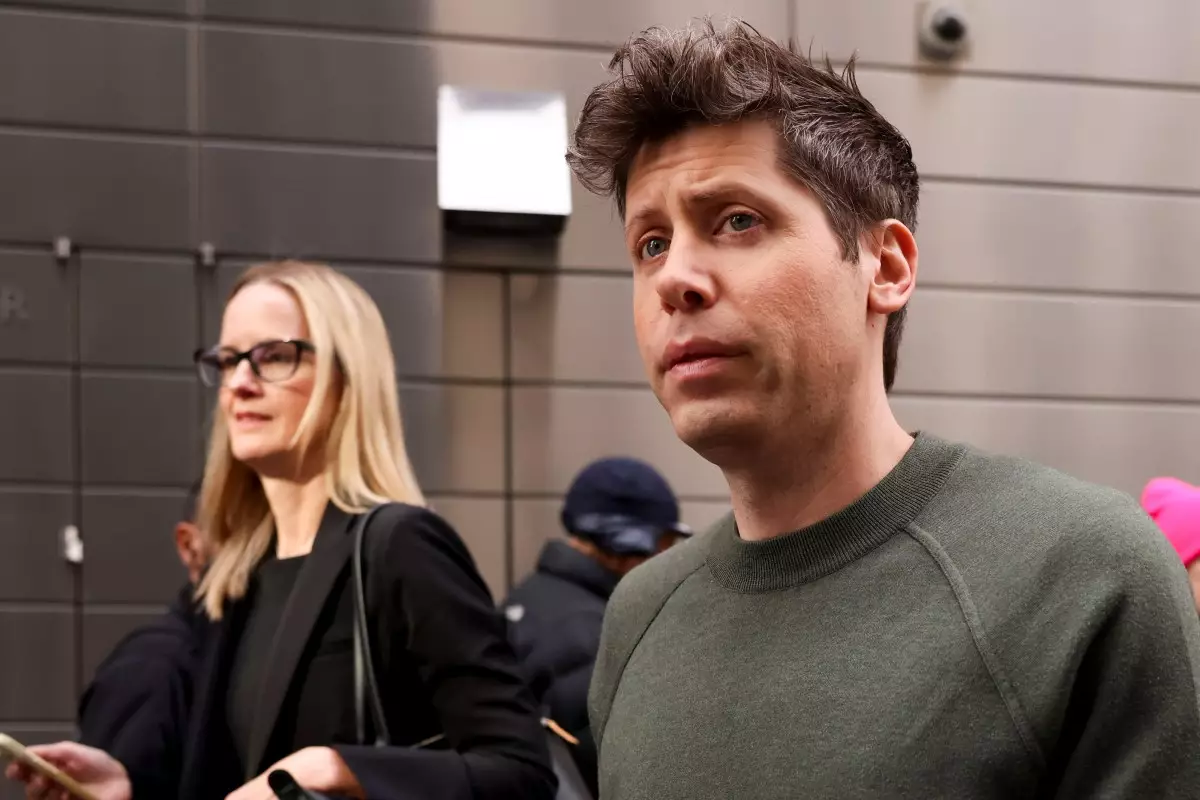Artificial intelligence (AI) stands at the forefront of technological innovation, poised to reshape numerous aspects of society. However, the ethical implications surrounding the governance of AI developments have never been more pressing. In the midst of these discussions, nonprofit organization Encode has emerged as a key player in advocating for the maintenance of ethical standards in AI development. Their recent request to file an amicus brief in support of Elon Musk’s injunction against OpenAI’s transition to a for-profit model is not just a legal maneuver; it reflects underlying societal concerns about the implications of prioritizing profit over safety.
OpenAI was conceived in 2015 as a nonprofit research lab dedicated to ensuring that AI benefits all of humanity. Initially, its mission was clear: collaborate on safely developing transformative technology. However, as the organization began to attract serious investments, the pressures of a capital-intensive environment steered it toward a hybrid model—part nonprofit, part for-profit. This dual structure, characterized by a capped-profit initiative for investors and employees, raised eyebrows among stakeholders who are wary of compromising core missions for the sake of financial gain.
The proposed transition of OpenAI into a Delaware Public Benefit Corporation (PBC) represents a significant shift in this narrative. The PBC structure is designed to weigh public benefit alongside shareholder interests, but critics argue that this could lead to a dilution of the original mission. By ceding operational control to a for-profit entity, concerns arise that OpenAI might prioritize financial returns over societal safety, especially given the profound implications of AI technologies.
Encode’s request for an amicus brief underscores a larger societal concern: the potential separation of AI development from ethical oversight. The briefing asserts that OpenAI’s evolving structure jeopardizes the values enshrined in its founding mission. It argues that a profit-centric model could signal diminished incentives to adhere to responsible practices, specifically the promise to halt competitive projects that are safety-centered. If OpenAI is expected to balance public welfare against profit motives, there lies a risk that the public interest may falter under financial pressures.
Musk’s lawsuit articulates a fear that the reorganization is akin to abandoning a philanthropic effort, favoring the interests of a select group of financiers. His assertions that rivals are being stifled access to vital funding highlight further economic implications; the AI competition landscape could shift dramatically towards those with ample resources, leaving smaller, safety-conscious initiatives stranded.
The response from industry players has been telling. Meta, a significant competitor within the AI arena, allied itself with efforts to halt OpenAI’s transition, emphasizing the “seismic implications” such a move could have on Silicon Valley at large. This broadening discourse emphasizes that the intentions behind such legislative and operational transformations extend beyond OpenAI’s activities alone; they could affect the very fabric of technological innovation in the region.
Moreover, the fear of a brain drain within the company further complicates the discourse. A number of high-profile employees have left OpenAI, expressing concern that the organization’s mission is being eclipsed by commercial objectives. Instances like the departure of Miles Brundage bring to light ruminations on whether OpenAI could transform from a committed nonprofit into an entity that merely operates under the guise of social responsibility while pursuing profit-driven strategies.
The Future of Ethical AI Development
In this rapidly evolving landscape, the core question remains: how do we ensure that AI technologies are developed ethically and responsibly? As organizations like Encode advocate for an ethical oversight and rigorous public benefit standards, the ongoing discourse signifies that key stakeholders—including the public, investors, and policymakers—must engage in proactive discussions.
Those involved in AI development need to confront the ethical implications of their actions. While innovation is imperative for progress, it must not supersede the ethical dilemmas tied to AI safety. As society stands on the cusp of experiencing the full impact of artificial general intelligence (AGI), the call for accountability becomes ever more crucial. The intersection of profit and public welfare in AI development is a conundrum that requires balanced and thoughtful navigation—one that champions the essence of responsible innovation over unbridled financial motives.
Encode’s involvement in challenging OpenAI’s direction embodies a collective desire for accountability that echoes across various sectors of society. The importance of ethical parameters in AI development cannot be overstated, particularly when the potential consequences of unregulated advancements threaten public safety and welfare. As stakeholders grapple with these pressing issues, we must collectively strive for a future where technology serves humanity and not the other way around.

